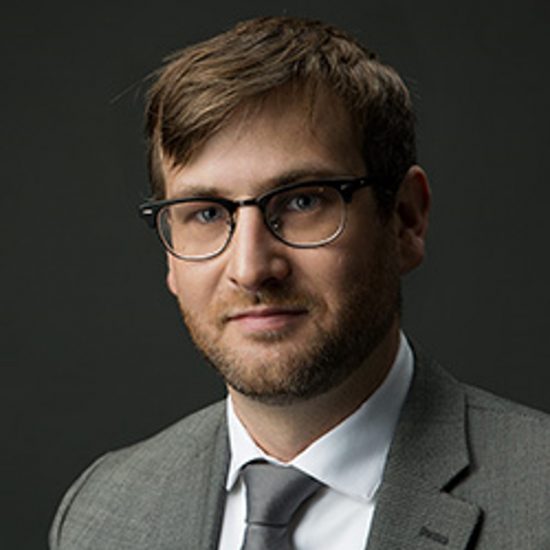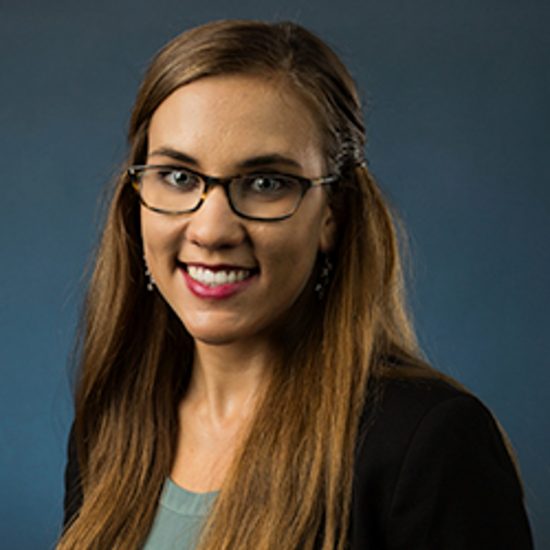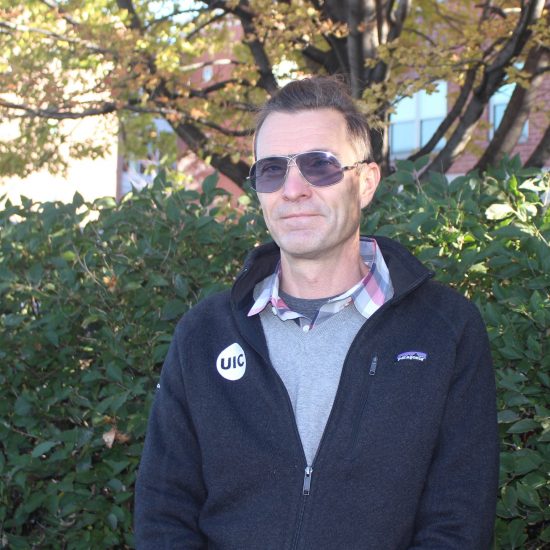Introducing Our 2025 Research Webinar Series
The Energy Research Center (ERC) has been advancing understanding of energy-related issues and promoting sustainability for 50 years through its research and education initiatives.
Upcoming Sessions
Event Description
Businesses depend on nature for raw materials, supporting services, and resilience. Energy operations are no different. This webinar will discuss business risks posed by nature, how companies can evaluate risks, and manage them by engaging in nature-positive actions.
Event Description
Join us for a webinar on strategic energy solutions for industrial manufacturing, a sector that faces rising energy costs, global competition, and sustainability challenges. As one of the largest energy consumers and emission emitters in the U.S., manufacturers must explore energy efficiency and onsite energy technologies to enhance competitiveness and resiliency. There is no one-size-fits-all approach—each facility requires customized strategies to identify opportunities, barriers, and tailored solutions. Experts from UIC’s DOE technical assistance programs will share insights on industry trends, case studies, and no-cost resources available to help manufacturers optimize energy use and achieve their energy and sustainability goals.
Event Description
Graeme Miller will provide an update on the Future of Gas workshops in Illinois. He will discuss what the big issues are, what possible solutions might be, and what next steps need to be taken.
Past Sessions
Event Description
The ERC is building on its industry-leading conservation efforts. This new agreement enables conservation across energy and transportation sectors to improve biodiversity. Join us to learn more about how you can participate or support this important effort.
Event Description
This webinar was hosted to explore practical approaches to minimize waste, reduce emissions, and conserve resources in metal manufacturing and fabrication facilities. We also covered case studies showcasing successful pollution prevention initiatives and funding opportunities for project implementation, which you can find below.
Event Description
Food processing facilities play a vital role in feeding the world, but they also generate significant environmental impacts through waste, water usage, and emissions. This webinar focuses on practical strategies and innovative technologies to reduce pollution at its source, ensuring sustainable operations and regulatory compliance.
Join the Pollution Prevention Team at UIC as we explore the best practices for minimizing waste and optimizing resource use. Cutting-edge solutions for reducing energy and water consumption. Case studies showcasing successful pollution prevention initiatives—funding opportunities for project implementation. Whether you’re a facility manager, sustainability officer, or decision-maker, this webinar will provide actionable guidance to help your organization achieve environmental excellence while improving operational efficiency.
Event description
The U.S. industrial sector contributes significantly to overall emissions, accounting for 23% of total U.S. CO2e emissions (GWP100) in 2021. The U.S. Department of Energy’s (DOE) Industrial Decarbonization Liftoff report provides an overview of the various pathways to decarbonization across the largest industrial sub-sectors. This webinar will discuss how onsite generation can play a significant role of decarbonizing the industrial sector both today and in the future and also how the U.S. DOE Onsite Energy Technical Assistance Partnerships can assist in this energy transformation.
Event Description
In 2023, the STEM Scholars program received funding from the U.S. Environmental Protection Agency to educate Chicago’s marginalized youth on the pressing environmental issues. The three topics are environmental justice, biofuels, and anaerobic digesters. The presentation will share best practices and lessons learned from the incorporated curriculum. Additionally, the presentation will cover the outcomes of working with low-income communities when volunteering at local community gardens, providing energy efficiency measures and education, and the need to serve these communities better.
Event Description
Aiding assisted living improve building conditions, for better living conditions while conserving energy and saving money.
Webinar Description
Industrial facilities tend to have wastes in the shape of energy, carbon emissions, and other pollutants. In this day and age of decarbonization and sustainability, it is imperative to identify waste in a plant and to take steps to mitigate them. The event focuses on the Department of Energy’s (DOE’s) pathway of decarbonization and Pollution Prevention techniques for a typical manufacturer. The event also highlights the no-cost DOE IAC and EPA P2 programs at UIC to assist manufacturers in energy and waste assessments.
Webinar Description
As the first campus in Illinois to be certified as a Bee Campus USA, the University of Illinois Chicago (UIC) is dedicated to enhancing and expanding pollinator habitat on campus. UIC’s impact expands far beyond the campus, however. The Energy Resources Center (ERC) at UIC supports pollinators nationwide by facilitating the Right of Way as Habitat Working Group, a cross-sector collaboration to support habitat conservation on working lands. Learn more about the diverse ways that different groups across UIC are working to protect pollinators both now and in the future through this co-hosted webinar by the ERC and the Office of Planning, Sustainability, and Project Management at UIC.
Webinar Description
The UIC-ERC hosts the STEM Scholars program, comprising an after-school program and a paid summer internship targeting Chicago’s marginalized, underrepresented high school students. This summer, the STEM Scholars Team is heavily focusing on workforce skill development to increase the participants’ likelihood of obtaining higher-paying jobs and succeeding in post-secondary education. Join us this August to learn the Team’s approach to workforce development and the new changes to the program.
Webinar Description
This presentation provided an introduction to greenhouse gas assessments of different low carbon transportation fuels. This included a primer on life cycle emissions modeling of fuel/vehicle combinations including vehicles powered by biofuels of different blend levels, electricity, and gasoline. Finally, the presentation will addressed life cycle emissions considerations for sustainable aviation fuels.
Webinar Description
Wastewater treatment is one of the major carriers of the water-energy-food nexus. Many Water Resource Recovery Facilities are setting ambitious sustainability goals related to energy efficiency, energy and carbon neutrality, greenhouse gas reductions, and net zero emissions. To achieve these goals, Water Resource Recovery Facilities will need to explore opportunities outside their fence lines. This presentation will cover the basics of the strategies that Water Resource Recovery Facilities can implement across the Water-Energy-Food nexus to support greenhouse gas reductions goals.
Webinar Description
Opportunity to learn from our years of experience collaborating with public housing institutions helping them improve their units. Implementing our recommendations has increased residents’ comfort level while making the units more energy efficient, achieving carbon reduction.
Webinar Description
The U.S. industrial sector is one of the largest energy consuming sectors in the U.S. while also being a significant contributor to energy-related emissions. According to the U.S. Energy Information Administration, in 2020, the industrial sector accounted for 33% of the U.S.’ primary energy use and 30% of the energy-related CO2 emissions. The industrial sector is viewed as a “difficult-to-decarbonize” sector posing many challenges to decarbonizing. Attend this webinar and learn from UIC-ERC research engineers about the challenges impacting the industrial sector, the potential strategies to overcome these barriers, the funding opportunities to implement clean energy projects, and the technical assistance offerings for the industrial sector through U.S. Department of Energy programs managed by the University of Illinois Chicago.
Webinar Description
The University of Illinois Chicago is working with Argonne National Laboratory, National Renewable Energy Laboratory, the University of Ilinois Urbana Champaign, and Stantec on the Department of Energy funded project: Pollinator Habitat Aligned with Solar Energy. The project team is researching the impacts of colocating pollinator vegetation at solar facilities as it relates to the performance of the solar panels, the operations impacts for managing the vegetation, and the ecosystem services the pollinator vegetation can offer. In this presentation the team will provide updates on research activities, tools being developed, and share findings from the preliminary analysis that has been conducted.
Webinar Description
Energy and transportation lands continue to provide unique opportunities for wildlife habitat, especially for pollinators. The ERC supports pollinator habitat through a variety of programs including voluntary conservation agreements, a suite of monitoring and tracking tools, technical task forces and webinars, and research projects. This webinar will highlight a few of the recent developments and accomplishments across the Rights-of-Way as Habitat Working Group.
Webinar Description
A guide describing the benefits of energy efficiency for K-12 schools in the mid-west. This webinar will cover the steps for implementation and expected investment and funding opportunities for energy efficiency improvement measures and strategies.
Webinar Description
The Energy Resources Center hosts the STEM Scholars after school program and internship for high school students interested in science, technology, engineering, and math (STEM), as well as energy efficiency, and environmental justice. Learn how students collaborate with staff on projects focused on sustainable landscapes, energy efficiency, and environmental justice at the ERC.
Webinar Description
The benefits of providing energy efficient measures that have high installation rate and easy to install to underserved communities via kits. The importance of offering quality products to reduce maintenance and deliver them to participants in a cost-effective manner in order to reach wider audiences. Aid participants with the tools and literacy to maximize both the energy conservation and utility savings.
Webinar Description
Decarbonizing our energy sector is one of the most pressing issues of the day. However, this task is not as simple as expanding PV cells or wind turbines. In addition to no/low carbon resources, the grid also needs reliable, resilient, and available resources to provide firm power. Further, the current debate surrounding energy decarbonization often overlooks the very real issues on thermal energy production. This lecture will discuss how Combined Heat and Power technologies can help enable a greater renewable generation deployment while providing no/low carbon electric and thermal energy.
Webinar Description
The Energy Resources Center has two programs which offer no cost energy assessments for industrial clients in the Chicagoland area and the State of Illinois: The Industrial Assessment Center sponsored by the US Department of Energy and the Source Reduction Assistance Program sponsored by the Environmental Protection Agency. These programs work hand in hand to identify savings opportunities for electricity, natural gas, water, and sewer costs while also providing information on any available incentives from local utilities to help reduce costs. The assessments are performed by teams of UIC engineering interns who get the opportunity to learn the trade and get real field experience before graduating.
Webinar Description
The Energy Resources Center has two programs which offer no cost energy assessments for industrial clients in the Chicagoland area and the State of Illinois: The Industrial Assessment Center sponsored by the US Department of Energy and the Source Reduction Assistance Program sponsored by the Environmental Protection Agency. These programs work hand in hand to identify savings opportunities for electricity, natural gas, water, and sewer costs while also providing information on any available incentives from local utilities to help reduce costs. The assessments are performed by teams of UIC engineering interns who get the opportunity to learn the trade and get real field experience before graduating.
Webinar Description
In an effort to not only reduce operational expenses but to also be better environmental stewards to their communities, several Water Resource Recovery Facilities are pursuing the goal of being energy neutral. Internal resource recovery, external resource addition, and increased energy efficiency are the strategies chosen by the Facilities to meet their goal. This presentation will outline some case studies of successful projects and will discuss incentives and programs available to help Water Resource Recovery Facilities to become energy neutral.
Description
The Technical Advisory Committee is a subgroup of the Illinois Stakeholder Advisory Group tasked with development of the Illinois TRM. This technical lecture will discuss the process and importance of development of the Illinois deemed savings database and relate the ERC’s experience in developing and editing geothermal heatpumps, air source heatpumps, and combined heat and power workpapers to be published in the TRM.
Speaker Profile
Description
Combined Heat and Power is the most efficient method of creating useful energy from combustion. Unlike other generation technologies, there is not one singular CHP technology. Instead, the term Combined Heat and Power is more of a description of the product and not the method or technology by which the product is generated. Technologies such
as combustion turbines, reciprocating engines, microturbines, steam turbines, fuel cells, absorption chillers and heat recovery steam generators can all be used in a CHP configuration. Due to the application’s specificity the US Dept. of Energy created regional centers (Technical Assistance Partnerships) which provide technical and educational assistance to promote this efficient technology. This presentation will introduce CHP while providing an overview of the CHP TAPs.
Speaker Profile
Description
Students from marginalized communities have been historically underrepresented in science, technology, engineering, and math (STEM). STEM Scholars is an after school program designed to engage high school students with hands-on learning in STEM to encourage higher education enrollment and increased pursuit of STEM careers. Following the after school program, students are offered a summer internship where they will receive mentorship and have practical working experience in engineering, environmental justice, and energy efficiency.
Speaker Profile
Description
Insect populations around the world have experienced dramatic declines in the last several decades, including many species of pollinating insects that are critical to our food systems and economy. For the past 6 years, the ERC has spearheaded a variety of initiatives to promote pollinator habitat conservation on working landscapes, such as utility corridors, roadsides, and other under-utilized lands.
Speaker Profile
Webinar Description
The electrification of the automobile sector has been widely seen as the solution to transportation emissions. Researchers realize that technical problems remain including the possibility that this technology leads to a significant expansion of coal-fired electricity resources in global markets. On the other hand, liquid transportation fuels are improving from the higher adoption of biofuels which allows substitution of cleaner octane for aromatics. This presentation will focus on the need to move towards high-octane fuels that provide efficiency improvements and health benefits and ultimately a practical complement to sensible electrification efforts.
We're excited to announce an additional speaker:
Karen O’Brien
Sustainability Engineering Manager
Gevo Inc.
Guest Speaker Bio:
Karen has served as a process engineer with Gevo since 2016 and as the sustainability engineering manager since 2019. She has validated, built, and verified Life Cycle Models for global carbon markets and led the certification of production facilities and feedstock for both ISCC and RSB. She enabled the creation of a blockchain solution for Gevo’s sustainability supply chain that led to the formation of Verity Tracking, a joint venture with Blocksize Capital, the first of its kind to trace sustainability claims from the field to flight. Ms. O’Brien currently represents Gevo under the Advanced Biofuels Association in the Fuels Task Group working group under ICAO CORSIA. She holds a bachelor’s degree in Chemical and Biochemical Engineering with a Minor in Biomedical Engineering from Colorado School of Mines and is currently completing an MBA from the University of Colorado’s Leeds School of Business.




